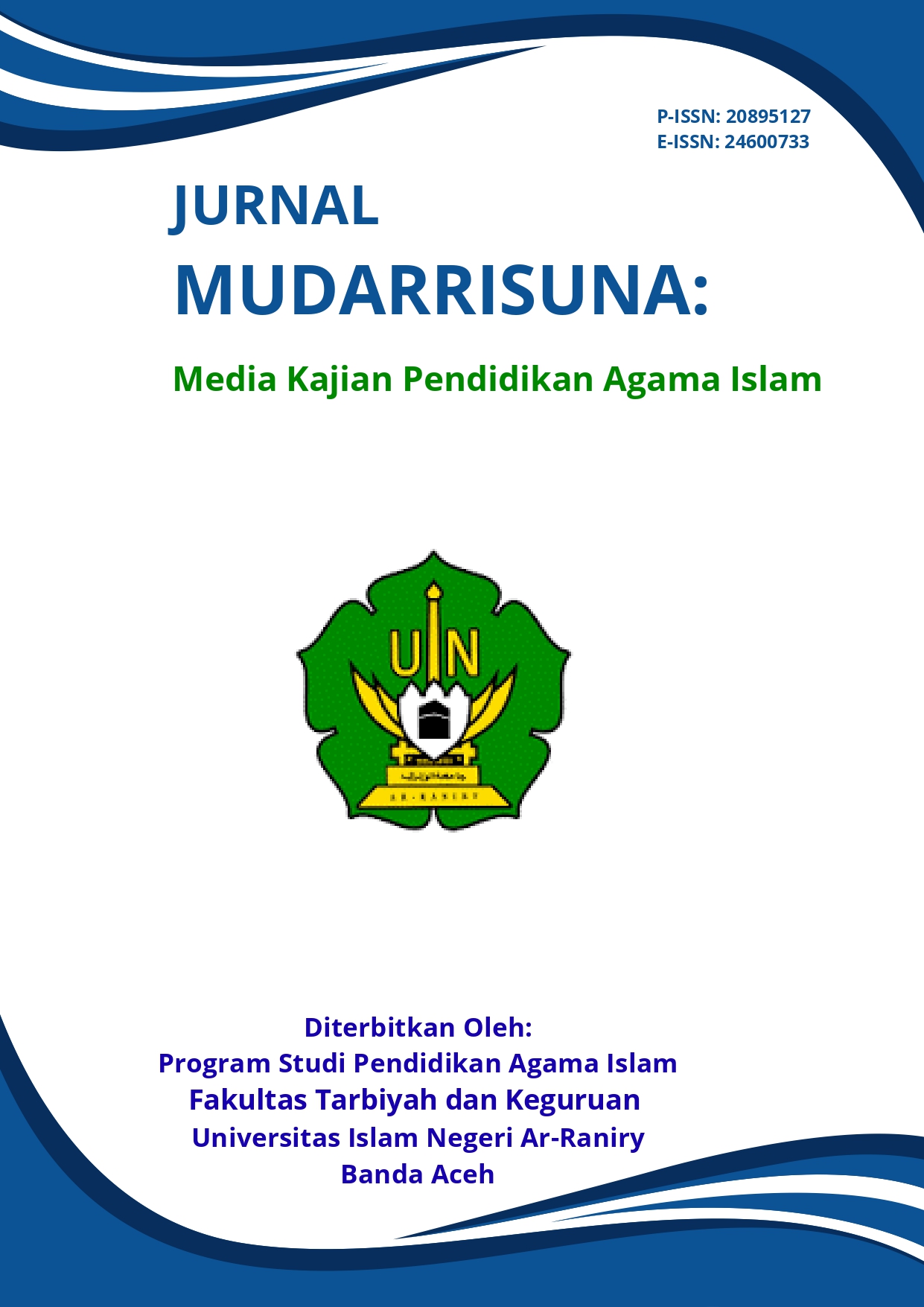GLOBAL CIVILIZATION MADRASAH BASED ON MOSQUES: ISTIQLAL JAKARTA MADRASAH STUDY
DOI:
https://doi.org/10.22373/45bd8q11Keywords:
Mosque, Global Civilization, Istiqlal MadrasahAbstract
Mosques are places of worship for Muslims. However, the function of mosques is not limited to just being a place of worship, but also as a center of learning, especially in religious education. During the time of Rasulullah SAW, mosques had various functions such as places of worship (prayers), centers for education, teaching, justice, economic empowerment of the people, information centers, military training and government. This research aims to: Describe the role of the Istiqlal Mosque as the main center in the development of Islamic education. Analyzing the Istiqlal Madrasah education program which integrates the values of Islamic education and science and technology. The research results show that Madrasah Istiqlal Jakarta functions as a mosque-based madrasah that supports global civilization. This madrasah is not only a religious educational institution, but also a center for character and intellectual development for the young generation of Muslims who are ready to contribute to the development of a just and prosperous global civilization. Istiqlal Madrasah has several unique characteristics that differentiate it from traditional madrasas, namely: Integrated Curriculum, Innovative Learning Approach, Islamic Character Development, and Openness to the World.
References
Aisyah, U. (2016). Revitalisasi Madrasah Untuk Menghadapi Tantangan Globalisasi. Jurnal Tarbiyatuna, Vol. 7(No.1), 97.
Al-Nur, W. R., Viranda, C., Handayani, W., & Irawan, F. (n.d.). Pengaruh Religiusitas dan Pendidikan Karakter Siswa (Disiplin , Jujur, Sopan Santun, dan Bertanggung Jawab) terhadap Agresivitas di MI Istiqlal Jakarta. Jurnal Kependidikan, Vol 11(No 2), 283.
Amrulloh, M. B., & Ariyanti, A. (2023). Implementasi Program Pendidikan Islam Berbasis Masjid di Sekolah. Jurnal of Education and Religion Studies (JERS), Vol. 3(No.2), 31.
Baharuddin, & Umiarso. (2011). Dikotomi Pendidikan Islam. PT. Remaja Rosdakarya.
Darojat, & Wahyudiana. (2014). Memfungsikan Masjid Sebagai Pusat Pendidikan Untuk Membentuk Peradaban Islam. Jurnal Islamadina, Vol. 13(No. 2), 5.
Glasse, C. (2002). Ensikolopedi Hukum Islam. PT Ichtiar Baru Van Hoeve.
Hafid, H., Fuad, Z., & Mas’ud, A. (2022). Peran Madrasah Dalam Lembaga Pendidikan Islam di Era Peradaban Modern. Fikruna Jurnal Ilmiah Kependidikan Dan Kemasyarakatan, Vol. 4(No. 2).
Hidayat, R. (2016). Ilmu Pendidikan Islam. Lembaga Peduli Pengembangan Pendidikan Indonesia.
Islam, E. H. (2000). Ensiklopedi Hukum Islam. PT Ichtiar Baru Van Hoeve.
Nasr, S. H. (1986). Science and Civilization Islam ; Penerjemah J. Mahyudin; Penyunting Ahmad Noe’man (Cet I). Pustaka.
Nizar, S. (2009). Sejarah Pendidikan Islam. kencana Preana Media Group.
Rukiati, E. K., & H, F. (2006). Sejarah Pendidikan di Indonesia. Pustaka Setia.
Rumina. (2016). Eksistensi Majid Aula Gondang di Tinjau Dari Sosiologi Pendidikan Islam Kecamatan Pace Kabupaten Nganjuk. Qodiri: Jurnal Pendidikan, Sosial Dan Keagamaan, Vol. 1(No. 2), 36–55.
Shihab, M. Q. (1996). Membumikan Al-Qur’an. Mizan.
Sutrisno, & Suyatno. (2015). Pendidikan Islam di Era Peradaban Modern. Prenamedia Group.
Umar, Y. (2016). Manajemen Pendidikan Madrasah Bermutu. PT Refika Aditama.
Downloads
Published
Issue
Section
License
Copyright (c) 2025 Mochammad Taufiqurrahman

This work is licensed under a Creative Commons Attribution-ShareAlike 4.0 International License.
Jurnal MUDARRISUNA: Media Kajian Pendidikan Agama Islam allows the author(s) to hold the copyright and to retain the publishing rights without restrictions. Authors who publish in this journal agree to the following terms:
- Authors retain copyright and grant the journal right of first publication with the work simultaneously licensed under a Creative Commons Attribution-ShareAlike 4.0 International License that allows others to share the work with an acknowledgment of the work's authorship and initial publication in this journal.
- Authors are able to enter into separate, additional contractual arrangements for the non-exclusive distribution of the journal's published version of the work (e.g., post it to an institutional repository or publish it in a book), with an acknowledgment of its initial publication in this journal.
- Authors are permitted and encouraged to post their work online (e.g., in institutional repositories or on their website) prior to and during the submission process, as it can lead to productive exchanges, as well as earlier and greater citation of published work.




